Environment is priority for new railway
Updated: 2015-06-08 04:43
By MAO PENGFEI, CHEN WEIHUA in Rio de Janeiro and FAN FEIFEI in Beijing(China Daily Latin America)
|
||||||||
As China, Brazil and Peru recently announced the decision to conduct a feasibility study on a proposed transcontinental railway line in South America, government officials, experts and industry insiders all advocate that protection of the environment should be put the primary concern.
The proposed mega project, connecting Brazil's Atlantic coast and Peru's Pacific coast, aims to save transportation time across South America while reducing the cost of shipping from Brazil to China.
Since the proposed railway line will go though the Amazon rain forest, environmental protection has been made the priority even in the initial phase of the feasibility study.
During the research phase, evaluation on the project's impact on the environment and methods to alleviate any harmful impact will be the priority, said Wang Guoliang, director of Overseas Business Management Department at China Railway Eryuan Engineering Group (CREEC), who is also a member of the joint study team for this project.
Gu Dawei, director of the Department of Foreign Investment with the National Development and Reform Commission, visited Brazil and Peru with his working group from May 6 to 14 to undertake in-depth consultations with Brazil's Ministry of Communications and Peru's Department of Telecommunications regarding the feasibility study, according to an announcement released on the commission's official website.
According to Wang, all the evaluations, including its impact on rare species, soil and water conservation, cultural relics and life of local residents, will be conducted according to the environmental laws.
The team will try to balance the technical requirement, financial feasibility, social and economic benefit and environment-friendly need, via thorough studies.
"Brazil has extremely strong environmental laws. Any project to be undertaken in Brazil must observe these strict laws," said Charles Tang, chairman of the Brazil-China Chamber of Commerce and Industry.
Experts also believe that in the long run the railway will contribute more to protecting the environment than just a road system.
Automobile exhaust has been a main cause of air pollution, while a railway can do a better job, said Hu Jianping, a senior engineer with CREEC.
"Among all the modes of transportation, a railway is probably the most efficient, the most environmentally friendly," said Gao Zhikai, director of China National Association of International Studies.
"Even based on that, we still need to give the top priority to environmental protection, especially if the railway line will go through the forest from Brazil all the way to the Pacific coast, so I would say that China and South American countries need to sit down together and very carefully go over all these details and make sure eventually all of us are winners," Gao said.
Chinese Premier Li Keqiang also emphasized the importance of environmental protection in his speech at the Economic Commission for Latin America and the Caribbean (ECLAC) during his four-nation tour to Latin America which ended last week.
The cooperation between China and Latin America is based on mutual respect for each other's culture and protection for the environment and biodiversity. Chinese equipment can meet the environmental protection requirements, said Li.
The proposed route extends about 5,000 kilometers (3,107 miles), and includes 2,000 km of existing railway and 3,000 km to be constructed. Upon its completion, Brazil's products will have easier access to the Asian market and millions of tons of cargos will also be brought to Peruvian ports.
Latin American countries will get many jobs created through the project, Gao said. "Poverty will be reduced, and millions of people will be better off. If China can do this over the past 30 years, I truly believe people in Latin American countries can do equally well or even better," Gao said.
In the past few years, China's railway technology has been introduced to over 30 countries and regions. According to the official customs records, last year China's export of high-speed rail equipment increased by 22.6 percent year-on-year to 26.77 billion yuan, far exceeding the 4.9 percent overall rise of China's foreign trade export.
In 2014 alone, China's top four partners in the rail industry, ASEAN, Argentina, Australia, and the United States, respectively purchased 3.84 billion, 3.45 billion, 3.35 billion, and 3.17 billion yuan worth of equipment from Chinese corporations. The trade volume with other newly emerging rail markets including Brazil, South Africa, and Ethiopia also proliferated.
Environment has always been a concern for China's international rail business. Liu Jian, associate professor at Sun Yat-sen University, who holds a doctorate in politics, urged Chinese individuals in the railway business to "assume social responsibility and become qualified world citizens."
"As China's high-speed rail enters the international market, we have to start taking precautions against arbitrary construction and operation that disregard ecological factors in order to gain support from local residents," he said.
Cheng Yilun contributed to this story.
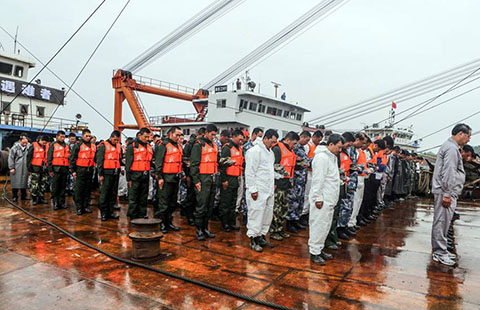
 Rescuers mourn victims on seventh day since Eastern Star disaster
Rescuers mourn victims on seventh day since Eastern Star disaster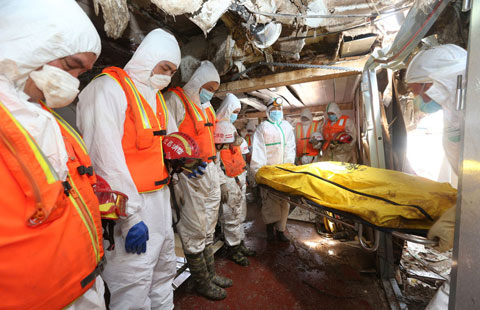
 Rescuers enter Eastern Star hull in search efforts
Rescuers enter Eastern Star hull in search efforts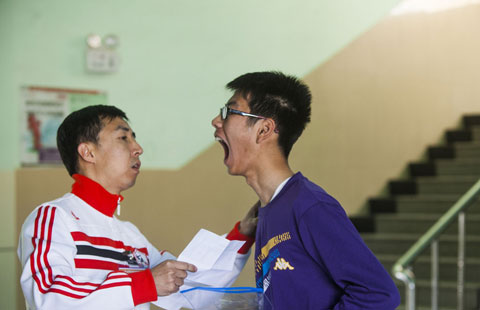
 Gaokao held across China
Gaokao held across China
 Man sues actress for staring at him
Man sues actress for staring at him
 Students prepare to take national college entrance exams
Students prepare to take national college entrance exams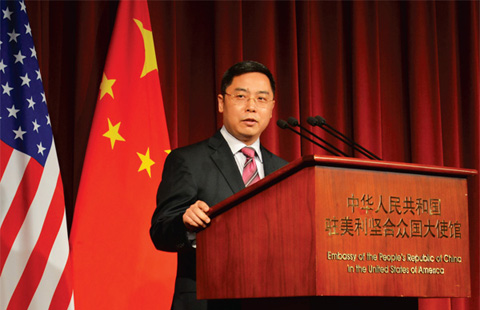
 Across America (May 29- June 4)
Across America (May 29- June 4)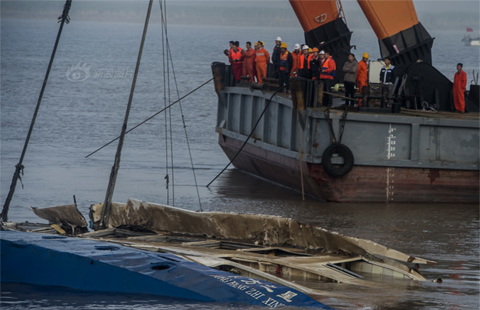
 Operation underway to turn the ship over
Operation underway to turn the ship over
 Prayers held for ship passengers
Prayers held for ship passengers
Most Viewed
Editor's Picks

|

|

|

|

|

|
Today's Top News
China gives its yuan to Broadway
Heavyweight Zhang wins unanimous decision
China mourns Yangtze shipwreck victims as search continues
China signs $50m agreement with FAO to support developing countries
9.42 million students sit national college entrance exam
Death toll jumps to 396
as hopes of finding any
survivor in cruise fade
China, Japan reopen finance talks after delay over sour relations
Hacking claim isn't responsible, Beijing says
US Weekly

|

|






